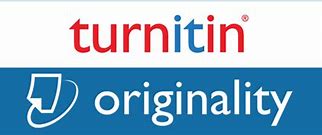META-ANALISIS: PROFIL TINGKAT KESIAPTERAPAN TEKNOLOGI HASIL PENELITIAN SOSHUM DI UNSOED TAHUN 2017-2019
DOI:
https://doi.org/10.47313/jib.v41i72.1023Keywords:
a metaanalysis, research skim, Technology Readiness Level (TKT)Abstract
The community service program (PPM) is the third Dharma college that must be implemented by all lecturers. The method used is generally in the form of technology transfer, either through training, education or hands-on practice. The technology applied must be a proven technology, no longer trial and error. The success of a university in carrying out PPM will be reflected in the performance achieved each year. The first year of research was focused on examining the research scheme managed by LPPM Unsoed with BLU funds for 2017-2019; the amount of funded research in the Soshum field and its suitability with TKT. The method used is a metaanalysis with a systematic review model, which is followed by FGD. The data and information obtained were analyzed thoroughly with an inductive approach based on the results of observations, interviews, discussions and secondary data to compile a descriptive abstraction with the stages of data reduction, data presentation and conclusion drawing. The results showed that there were 6 (six) research schemes that were always held by LPPM Unsoed in 2017-2019, namely: International Research Collaboration (IRC), Unsoed Leading Research, Unsoed Institutional Research, Competency Improvement Research, Beginner Lecturer Research and Special Task Facilities Professor. The number of Leading Research Development which was funded for the 2017-2019 period, in the Soshum field was 37 titles and Applied Leading Research which was funded for the 2018-2019 period, as many as 28 titles. Leading Research Development that has been carried out has conformity with TKT levels 7 and 8, while Applied Leading Research has conformity with TKT level 5 and level 6 with indicators for each Level of Technology Readiness (TKT) of Social Humainora and Education Types, according to Permenristekdikti 42/2016.References
Allen, M., Rayond W. Preiss, Barbara Mae Gayle & Nancy Burrel.
(2012). Interpersonal Communication Research Advances Through
Meta-Analysis, (London: Lawrence Erlbaum Associates Publisher,
, p. 3.
Arwanto & K. B. Prayitno. (2014). “Tekno-Meter Pengukuran Tingkat
Kesiapan Teknologi: Suatu Upaya Mengurai Stagnasi Inovasi di
Lembaga Litbang dan Penguatan Hubungan Pemasok-Pengguna,” in
Prosiding Forum Tahunan Pengembangan Iptek dan Inovasi nasional,
, p. 205
Daulay, H. 2016. Kesiapan Pelaksanaan Pengukuran dan Penetapan TKT untuk Hasil Riset dan Pengembangan Teknologi Tahun Anggaran
Day, G. S., P. J. Schoemaker & R. Gunther. (2000). Managing Emerging Technologies. The Wharton School, John Wiley and Sons, Inc.
Direktorat Riset dan Pengabdian Masyarakat. (2020). Panduan Program Penerapan Teknologi Tepat Guna Kepada Masyarakat. Direktorat Riset Dan Pengabdian Masyarakat Deputi Bidang Penguatan Riset dan Pengembangan Kementerian Riset Dan Teknologi/ BRIN. Jakarta.
Elmatsani, H. M. (2017). Pengembangan Aplikasi Pengukuran TKT
Online. Jurnal Rekayasa Elektrika, 13(3), 185-190.
Kemenristek Dikti, 2018. Panduan Penelitian dan Pengabdian Kepada
Masyarakat Edisi XII. Edisi Revisi 2019. Direktorat Riset dan
Pengabdian Kepada Masyarakat. Dirjen Penguatan Riset dan
Pengembangan. Kemenristek Dikti, Jakarta
Kemenristekdikti (2015). Permenristekdikti No. 44 Tahun 2015 tentang
Standar Nasional Pendidikan Tinggi
Kemenristekdikti (2016). Peraturan Menteri Riset Teknologi dan Pendidikan
Tinggi No. 42 Tahun 2016 tentang Pengukuran dan Penetapan Tingkat
Kesiapterapan Teknologi.
Kitchenham, B. (2004). Procedures for Performing Systemic Reviews.
Eversleigh: Keele University Technical Report.
Lee, M.C., T. Chang, & W.T.C. Chien. (2011). An Approach For Developing Concept of Inovation Readiness Levels,” International Journal of Managing Information Technology. 3(2)
Lehoux, P., Poland, B., & Daudelin, G. (2006). Focus group research and “the patient’s view.” Social Science & Medicine, 63, 2091-2104
LPPM Unsoed. (2016). Buku Panduan Penyusunan Proposal Penelitian.
LPPM Unsoed. Purwokerto
Peraturan Menteri Riset, Teknologi, dan Pendidikan Tinggi Republik
Indonesia Nomor 29 Tahun 2019 Tentang Pengukuran dan Penetapan
Tingkat Kesiapan Inovasi
Undang-Undang No. 18 Tahun 2002 tentang Sistem Nasional Penelitian, Pengembangan, dan Penerapan Ilmu Pengetahuan dan Teknologi.
Wahyuningrum, H., & Desrianti, O. (2018). Kajian Evaluasi Tingkat
Kesiapterapan Teknologi (TKT) Penelitian Di Batan.








